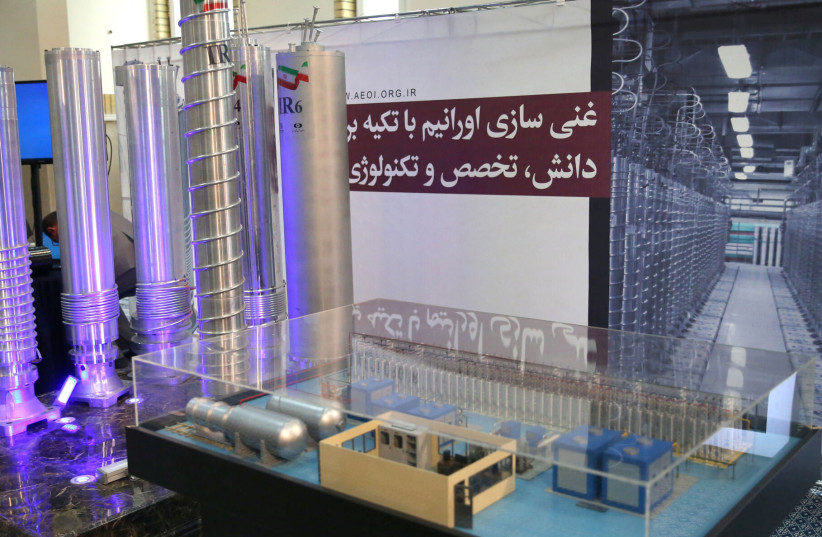No one knows for sure whether Israel would pull the trigger and strike Iran’s nuclear program preemptively if it felt time was about to run out on any chance of preventing the ayatollahs from achieving a deployable nuclear weapons capability.
But we can pretty much assume that Jerusalem will not take any major action as long as there is momentum between the West and the Islamic Republic for a potentially imminent deal.
It probably does not matter whether that deal would be a full return to the 2015 JCPOA nuclear deal or to the “less for less” – partial freeze of nuclear violations for partial sanctions relief deal that has taken over the headlines since last week. Either of those options eliminates Israel’s argument to the world of there being an imminent threat, assuming there is no new clear and convincing evidence of such a threat.
This can be derived from the fact that only Israeli politicians seem more vocal about attacking lately, and no Israeli defense officials are expressing any special urgency to attack.
In fact, after then-IDF chief of staff Aviv Kohavi made a speech last month that some Israeli journalists saw as a hint to a new war footing with Tehran, The Jerusalem Post was assured that nothing could be further from the truth.
But the Jewish state’s public record in sometimes attacking or allegedly attacking Iran since 2012 also clearly shows that Israel holds its fire much more during periods of a deal or potential deal.

The Post has been told that Israel’s security establishment did not stop its activities against Iran between 2012-2015, the period in which an interim deal was close to being closed, and which led to the JCPOA, but it seems they either slowed down or at least did not make it into the public record.
Likewise, from 2015 to 2020 there was little or no public record of attacks or alleged attacks on Iranian nuclear facilities.
That all changed in June 2020 when the IAEA Board of Governors condemned Iran (for the first time in nearly a decade) for failing to resolve nuclear questions raised by Mossad’s 2018 exposure of a number of undeclared nuclear sites and illicit nuclear material.
Explosions hit Iranian facilities after nuclear talks stalled
With nuclear negotiations stalled and an IAEA condemnation, nuclear and other facilities across the Islamic Republic started exploding left and right.
Some of the explosions were probably from poor maintenance but the July 2 destruction of Iran’s nuclear facility at Natanz was attributed by most to Israel, as was the destruction of another facility at Natanz in April 2021 and another at Karaj in June 2021 and the assassination of Iran nuclear chief Mohsen Fakhrizadeh.
Last April, US President Joe Biden officially nixed the idea of removing sanctions from Iran’s Islamic Revolutionary Guard Corps as part of negotiations, shortly after the focus on a deal with Iran dwindled, as the West shifted its focus to Russia’s February 2022 invasion of Ukraine.
This also cut off the negotiations for a period of a few months. During that period of late April to mid-June 2022, a large number of Iranian nuclear scientists and IRGC officials were assassinated, again attributed by many to Israel.
That November, the IAEA Board of Governors condemned Iran again. Shortly after, this past January, another major attack on Iran was attributed by most to Israel.
This picture is not perfectly consistent and there are outlier instances. Also, Israel can always try to use more quiet covert action, without taking public credit. (It has hinted publicly more about its covert actions in recent years than it had historically.)
But the vast majority of the time, no matter what Israeli political leaders tell the public, they are far more willing to attack when negotiations are stalled. And when negotiations appear close to a deal or when there is a deal, they are more careful, lest they be blamed for causing a deal that is “working” to break.
Israelis can debate whether any potential impending nuclear deal between Tehran and world powers would be positive or negative, but either way, as long as the atmosphere is pro-deal, Jerusalem’s actions are likely to be much quieter.
